The March on Washington for Jobs and Freedom was organized by A. Philip Randolph and Bayard Rustin. It was held on the 100th anniversary of the Emancipation Proclamation. On this day, Reverend Martin Luther King, Jr. delivered his famous "I have a dream" speech to 250,000 people. The march led to the passage of the Civil Rights Act of 1964 and the Voting Rights Act of 1965.
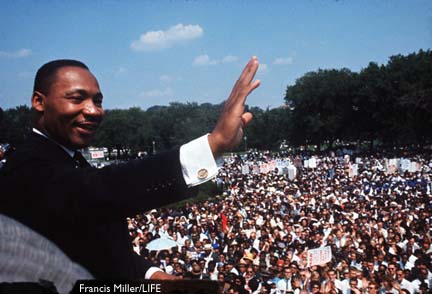
The idea for the March on Washington came from A. Philip Randolph (1889-1979). Randolph was a union organizer and one of the most important civil rights activists in the 20th century.
In 1925, he organized the Brotherhood of Sleeping Car Porters, a union of African American car porters employed by the Pullman Company. After pushing for a decade, he successfully led them to almost two million dollars in increased wages and better working conditions. He also led the BSCP to become the first African American union to join the American Federation of Labor, which had previously excluded African Americans.
The March on Washington for Jobs and Freedom had a precedent: in 1941, Randolph organized a March on Washington to protest the exclusion of African Americans from defense industry jobs--a way into the middle class. Faced with the prospect of a protest of 100,000, President Franklin Delano Roosevelt was forced to ban discrimination for defense industry jobs. Randolph cancelled the march and the March on Washington movement was born.
In 1962, Randolph wanted to do a similar march, bringing together civil rights groups. Bayard Rustin, another important person in the 20th century civil rights movement, to organize the march. The stated goals of the march were:
1. a comprehensive civil rights bill that would end segregated public accommodations
2. protection of the right to vote
3. ways to seek redress for violations of constitutional rights
4. the desegregation of all public schools in 1963
5. a massive federal works program to train and place unemployed workers
6. a Federal Fair Employment Practices Act barring discrimination in all employment
Hero Essays on Speakers at the 1963 March on Washington
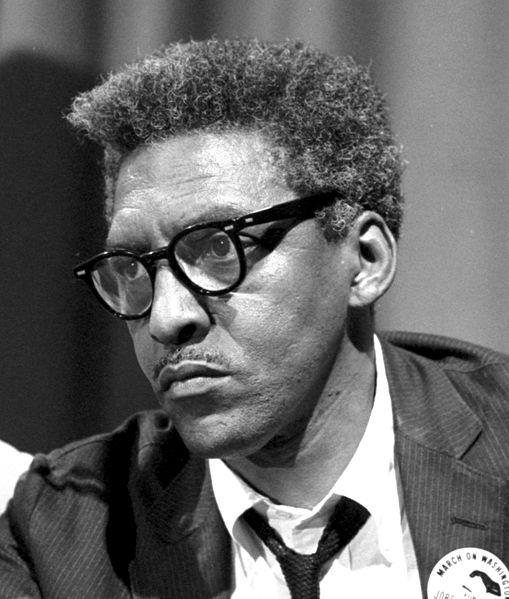
Bayard Rustin was a brilliant civil rights leader and labor organizer whose contributions were not always acknowledged because of homophobia. He was the principal organizer of the 1963 March on Washington, and had organized the first Freedom Rides. He became a mentor to many activists, especially for gay rights.
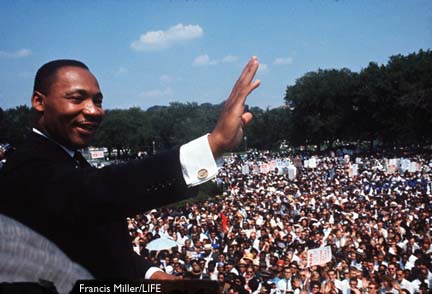
Dr. Martin Luther King, Jr. Congressman John Lewis talks about how Martin Luther King, Jr. inspired him as a young man during the Civil Rights Movement
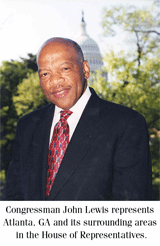
John Lewis has worked for civil rights for all for over 40 years. He was the youngest speaker at the 1963 March on Washington.
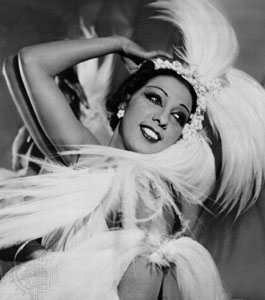
Josephine Baker was a popular African American dancer in France, fought for civil rights and freedom against the Nazis. She spoke at the March on Washington before the official program began.
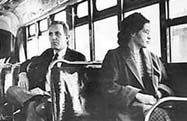
Rosa Parks made history when she refused to sit in the back of the bus. She was not a speaker at the March on Washington, but she was introduced on stage.
Hero Essays on Performers at the 1963 March on Washington
Hero Essays on Celebrities Who Were at the 1963 March on Washington
A hero essay on John F. Kennedy, who saw civil rights as a moral obligation. He proposed legislation what would become the 1964 Civil Rights Act, which guaranteed equal access to public facilities, federal protection of the right to vote, and the end of segregation in education.
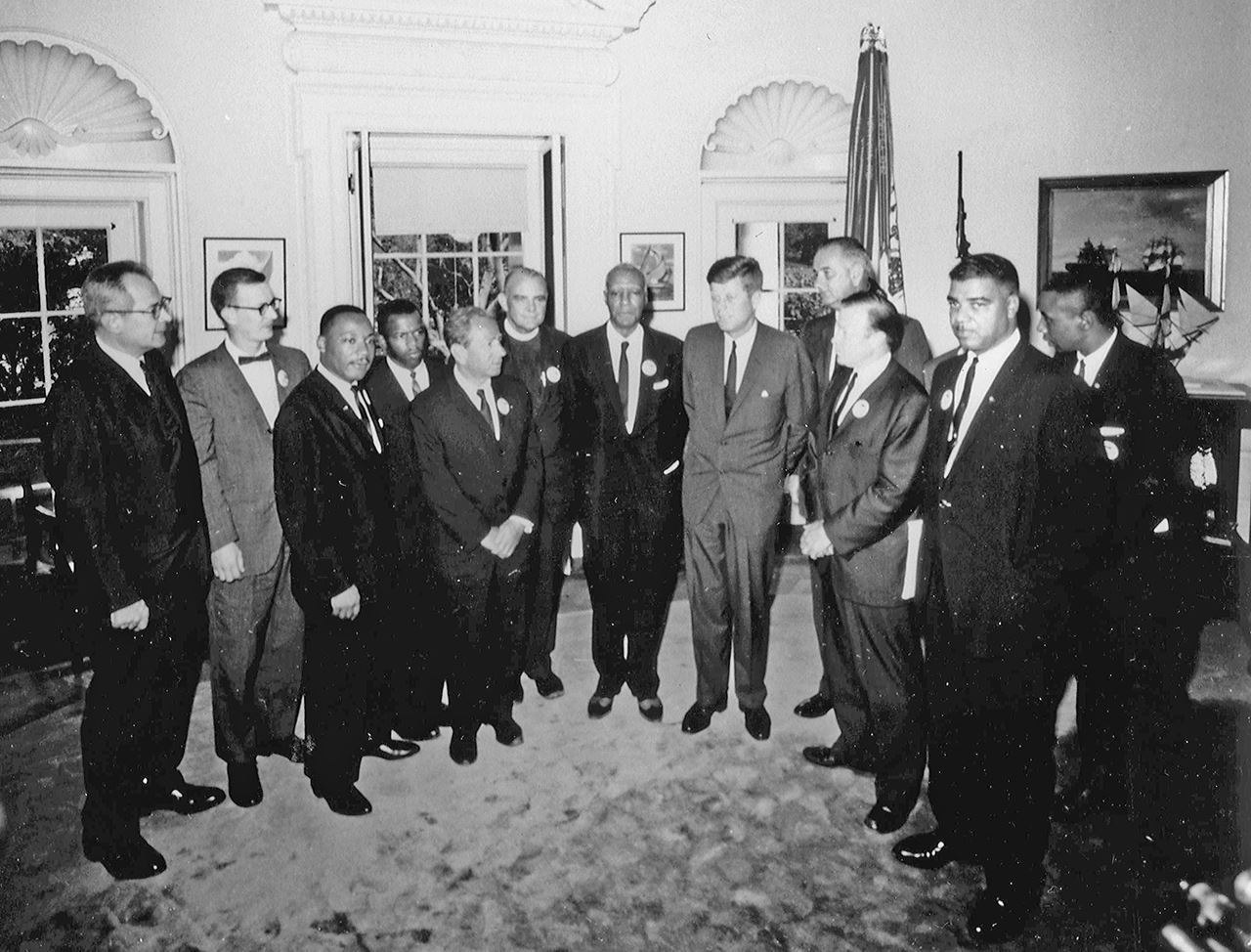
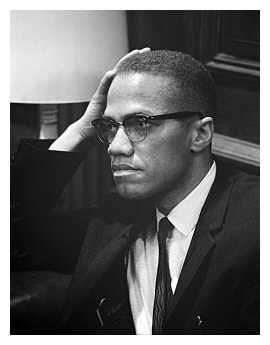
At the time of the 1963 March on Washington, Malcolm X criticized it and its leaders for selling out and promising a peaceful march. Blacks had been suffering in the "nightmare" of America, their anger was being diverted, and white people were integrated into the march. Later, Malcolm X changed his views on what people of the same economic class have in common.
The march was also criticized for having no official women speakers. Josephine Baker spoke, but before the ceremony began. Bayard Rustin gave a tribute to the women in the movement. Medgar Edvers's wife was scheduled to speak, but missed her flight, and Daisy Bates spoke very briefly in her place.
Related | More Civil Rights Leaders

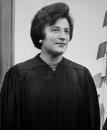
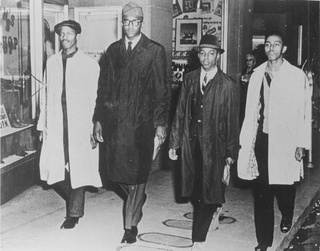
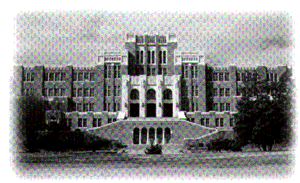
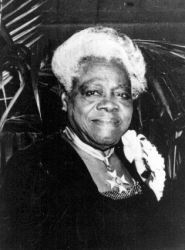
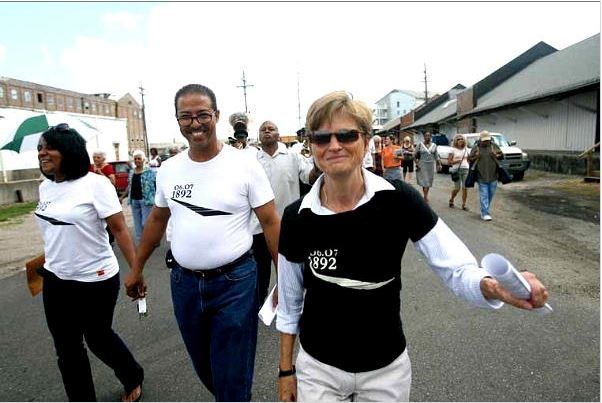
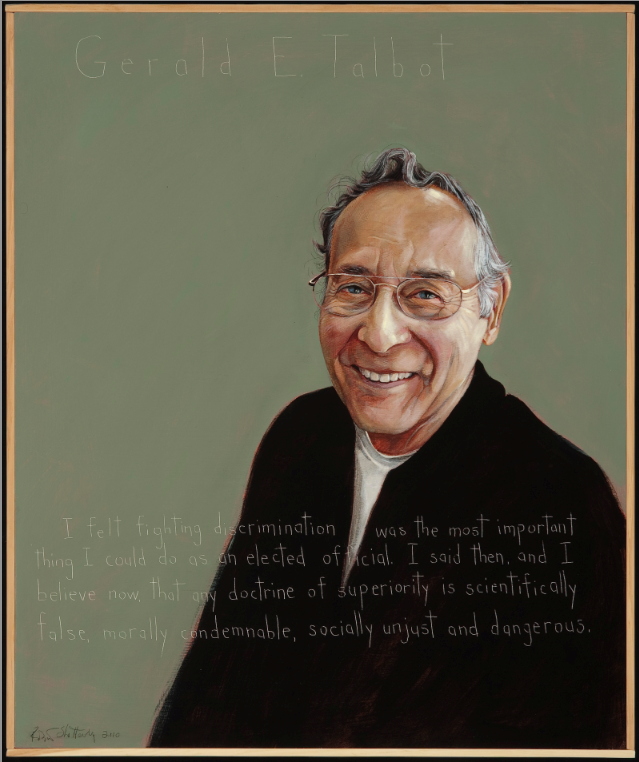
In 1972, Talbot became the first African American member of the Maine House of Representatives when he was elected to represent part of Portland, Maine as a Democrat.
Organizer created on 8/24/2013 1:14:54 PM by Becky Miller
Last edited 8/31/2020 6:55:39 PM by Rachel Priebe